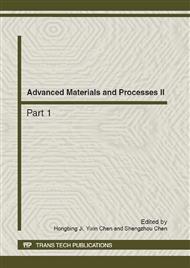p.1281
p.1288
p.1292
p.1298
p.1304
p.1308
p.1313
p.1317
p.1322
Formation Mechanism of Hydrogen-Induced Delayed Cracking in Weld Center of High-Strength Steel
Abstract:
Based on the estimation of the critical hydrogen pressure and concentrations required for hydrogen-induced delayed cracking in high-strength steel, the conclusion that welded joints are hydrogen pressure microcracks body can be drawn under certain conditions. Through the analysis of the relationship between the microstructure evolution of welded joints, diffusion enrichment of hydrogen and cracking behavior, the formation mechanism of hydrogen-induced delayed cracking in weld center of high-strength steel joints is analyzed and the mechanism that stress induced the residual diffusion hydrogen gathered to promote the hydrogen pressure microcracks propagation is proposed. The research shows that the initation and propogation of hydrogen-induced delayed cracking in weld center can be divided into two stages, i.e. irreversible hydrogen damage stage and reversible hydrogen damage stage. In irreversible stage hydrogen pressure is the main causes of the initation of microcracks, while in reversible stage welding residual stress and residual diffusible hydrogen are necessary conditions for microcracks growth. The microcracks growth can be controlled by regulating welding residual stress.
Info:
Periodical:
Pages:
1304-1307
Citation:
Online since:
July 2012
Price:
Сopyright:
© 2012 Trans Tech Publications Ltd. All Rights Reserved
Share:
Citation:


